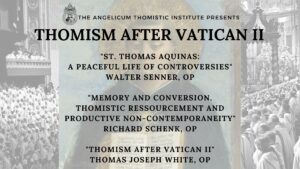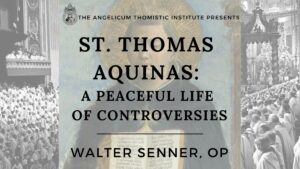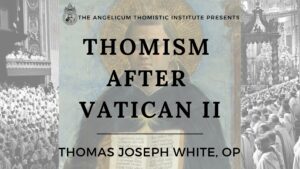Memory and Conversion: Thomistic Ressourcement and Productive Non-Contemporaneity
Richard Schenk, OP
University of Freiburg
After Vatican II, Thomism was often seen as a hindrance to the Church in her engagement with contemporary society. Today that assumption is being revisited. There is a renaissance in Thomistic studies, often in collaboration with other academic disciplines and in engagement with contemporary theology and philosophy. This event discussed the fate of Thomism in a post-Vatican II setting. What are its challenges and opportunities? How can the study of Aquinas’ thought contribute to the vitality of the Church’s intellectual tradition today?
This talk is part of the conference Thomism After Vatican II, which was held at the Angelicum on 27 October 2018.
Richard Schenk, OP is a Dominican originally from California, and a member of the Holy Name Province (Berkeley). From 1982 to 1985 he was a research assistant at Leo Scheffczyk at the Ludwig-Maximilians-University Munich. He has published extensively on the theological anthropology of Thomas Aquinas, often in comparison with the works of Martin Heidegger and Karl Rahner. From 2003 to 2005, he also served as director of the Faith and Culture (ICF) Intercultural Forum for Studies (Washington, DC) in Washington, D.C. From 2011-2014 he was the president of the Catholic University of Eichstätt-Ingolstadt. Currently he is honorary professor at the University of Freiburg in the field of Christian philosophy of religion.
Related Content



